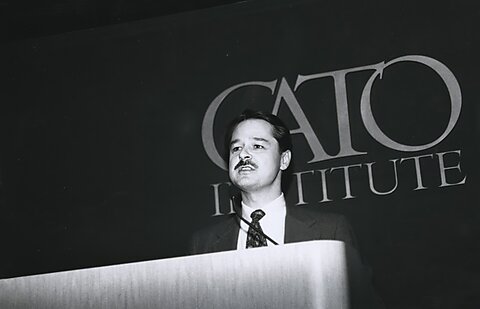David J. Bier
Almost no one has had a greater impact on my life than David Boaz. I couldn’t even pronounce his name correctly when I first met him, but growing up, David “Bo‐az” was the final word on policy. His books and articles applying the principles of the Declaration of Independence to the problems of modern America lined our shelves.
Without him, I never would have heard of the Cato Institute, nor could I have imagined a libertarian policy position. Being the sole light in a post‑9/11 world of policy darkness, the writings of Boaz and Cato—which were effectively synonymous in my mind—were the reason I abandoned my dream of being an engineer to devote my life to policy. I may have been a libertarian, somewhere, doing something, but it would have been an impoverished version without the depth, joy, and optimism of Boaz libertarianism.
His first email to me after hiring me was just a terse correction of my formatting of ellipses, but as many of our mistakes as he caught at Cato, I know he prevented far more. Boaz’s mere existence at Cato was a constant reminder to elevate your work to the loftiness of his standards and to remember the deeper purpose of why we write: not for citations or clicks or even academic curiosity, but to respectably represent the cause of liberty.
When I think about the effect that he has had and will continue to have on my life, I cannot help but think about all the millions of other people who he has affected who will never work at Cato but who will nevertheless carry on the torch of liberty. I recently received an email thanking me for writing The Libertarian Mind. I wish! But the error motivated me to open it and read David’s conclusion again: “Libertarianism is not just a framework for utopia, it is the indispensable framework for the future.”
Well said, as always. And I believe that no one can claim to have done more to give that framework a bright future than David Boaz.

